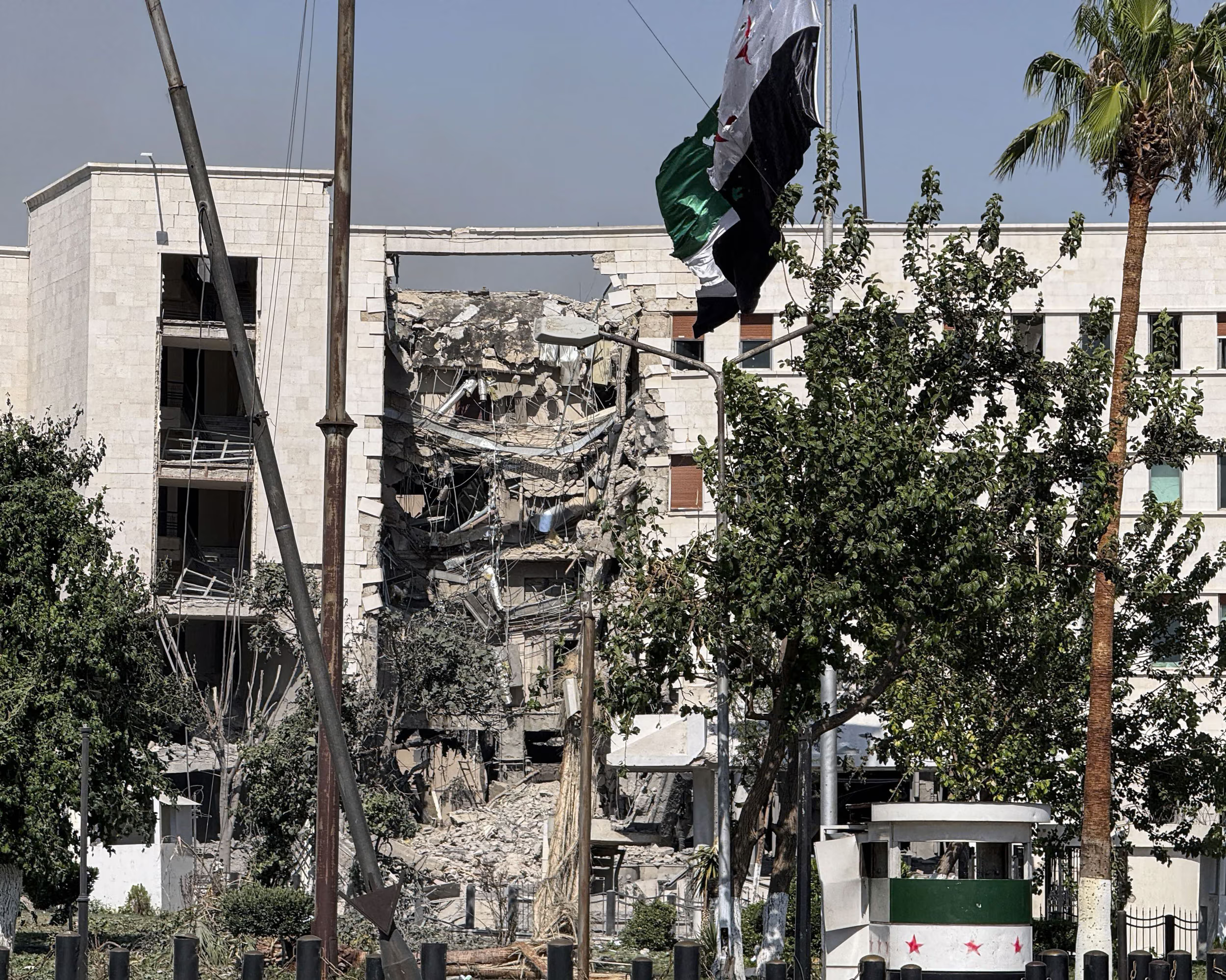Israeli airstrikes have targeted Syria’s General Staff and pro-Julani forces operating in Suwayda. Nearly 250 reported dead. A second front may be opening in the country’s north.
Tensions in Syria escalated sharply after government forces loyal to the new regime under Julani launched an offensive against the Druze autonomous region in the country’s south—an entity that has operated independently of Damascus since the fall of Assad’s regime, with backing from Israel.
Israeli strikes on the Syrian Army General Staff in Damascus.

Aftermath of two Israeli airstrikes on the Syrian Ministry of Defense building in Damascus.
The offensive escalated into a full-scale military confrontation involving Israel. After Syrian forces entered the city of Suwayda, Druze fighters launched a counterattack, regaining control over much of the area. In response, Israel carried out a series of large-scale airstrikes targeting advancing Syrian army units and sites in Damascus, including the General Staff. Syrian forces were forced to retreat. According to the latest estimates, the death toll from the fighting is approaching 250.
Media outlets critical of the new Syrian government have reported mass executions and indiscriminate shelling in Suwayda carried out by Julani’s forces. Some publications draw comparisons with the Alawite massacre in Latakia that took place in the spring. Druze representatives accuse the Syrian army of atrocities, abductions, and killings of civilians.
Footage of the Israeli strike on the Syrian Army General Staff aired live on local television.
Julani called the Israeli strikes a "treacherous act of aggression" and a "blatant violation of international law." According to Syrian officials, Israel is not only conducting airstrikes but also expanding its military presence in southern Syria—reportedly establishing around ten new bases in Quneitra and Daraa provinces, including within the UN-monitored buffer zone.
Against this backdrop, international fault lines in the Syrian conflict are becoming increasingly pronounced. Turkish media outlets supporting the Julani regime have claimed that the Trump administration urged Israel to halt its strikes. These reports remain unconfirmed, though it is known that Trump previously lifted sanctions on the new Syrian government and removed Julani from the U.S. list of designated terrorists.
Nonetheless, Israel continues to back the Druze. Prime Minister Benjamin Netanyahu issued a strong statement in their support: "We are acting to save your Druze brothers and destroy the regime's gangs," he said, addressing Israel’s Druze community. According to Netanyahu, the IDF, Air Force, and other agencies are already engaged in operations in southern Syria.
Israel’s Army Radio reported that the IDF carried out a warning strike near the presidential palace in Damascus. Social media accounts are sharing footage showing smoke rising in the palace vicinity.
Amid the fighting, videos have surfaced showing Israeli Druze crossing the border to join the defense of Suwayda. Netanyahu urged them to refrain: "You are citizens of Israel. Do not cross the border. You are putting yourselves at risk and interfering with IDF operations. Go home and let the army do its job."
Meanwhile, Syrian authorities are deploying reinforcements to the south. Tensions are also rising with Kurdish forces controlling the eastern and northern parts of the country. This raises the risk of a second front—and potentially, direct military intervention by Turkey, which supports the current government in Damascus.
